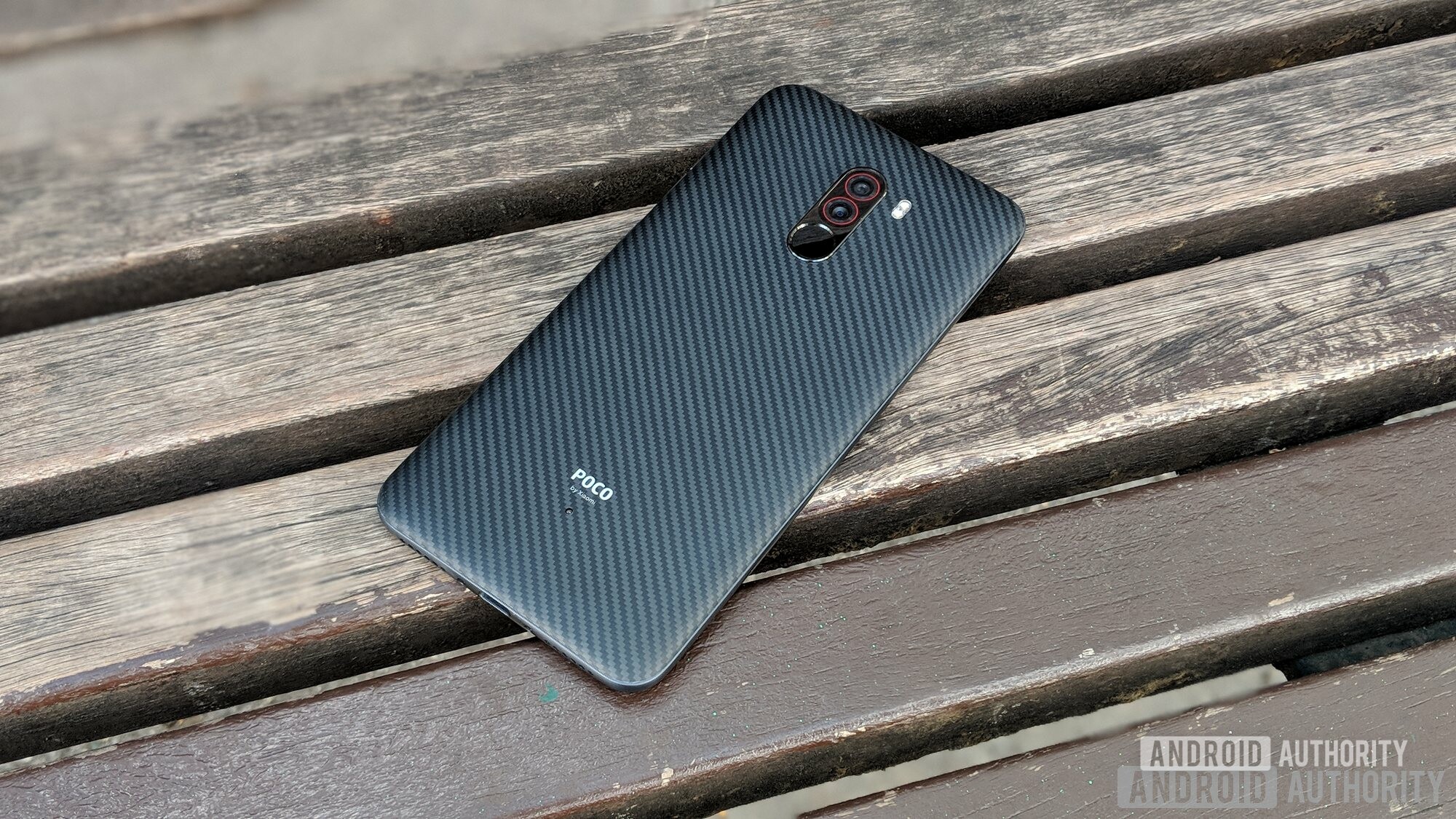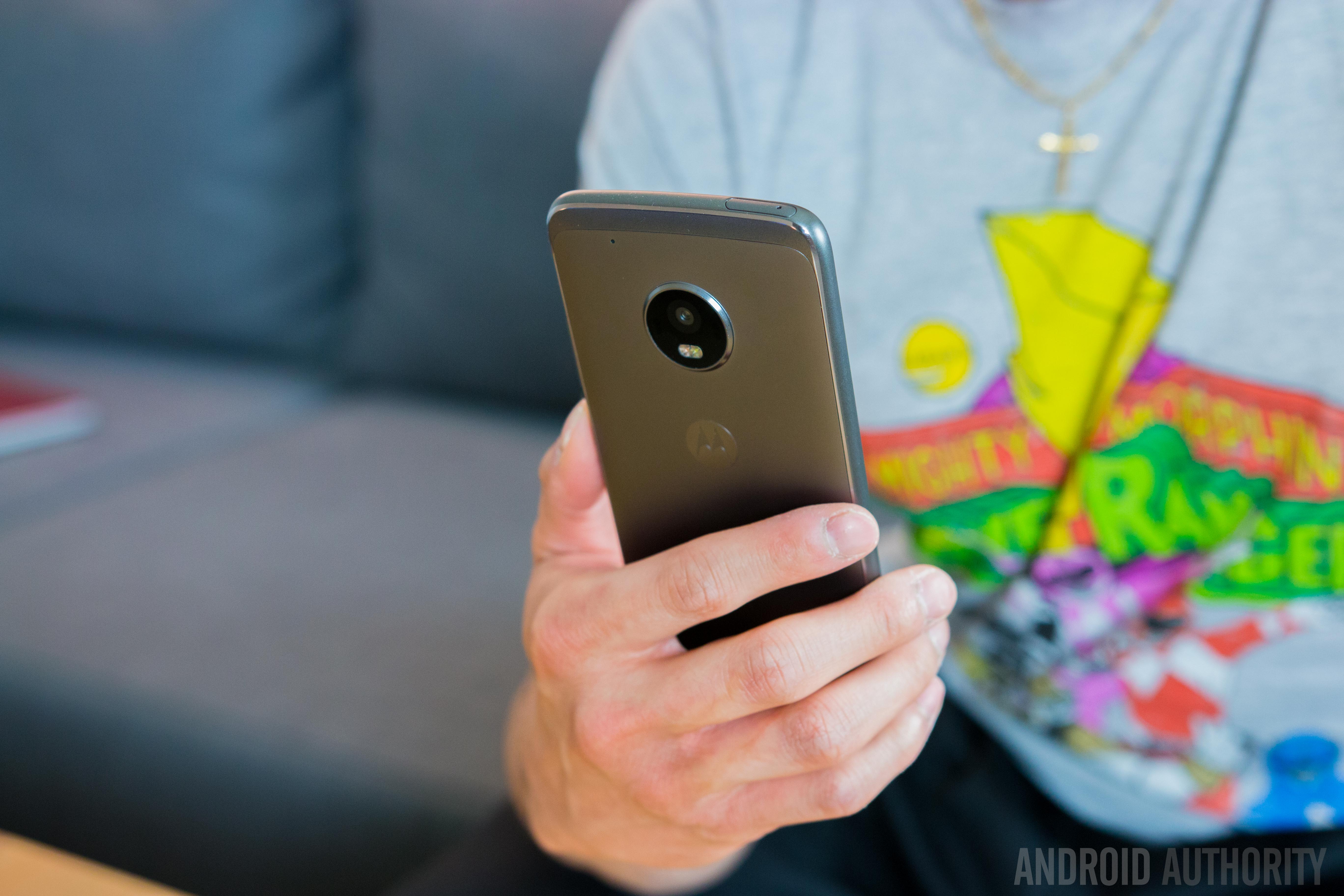
In traditional Honor fashion, the new Honor Play is another compelling budget choice. Somehow, it offers flagship tier hardware starting at 19,999 rupees (~$285).
It turns out plenty of great smartphones offer substantial bang for your buck these days, even at around $300, so we pulled out a few — the new Xiaomi Pocophone F1 and Oppo F9 Pro — for this comparison, as well as the Nokia 6.1 Plus, and the Moto G6 Plus.
Flagship performance without the price tag
There isn't much to say about these phones' displays. All of our comparison models boast very similar FHD+ resolution LCD panels with elongated aspect ratios. Instead, let's dive into the processing package, as this has traditionally been a weak spot for low-cost phones.
The Honor Play boasts Huawei's Kirin 970 SoC, which you'll find in flagship products like the Huawei P20 Pro. The Xiaomi Pocophone's newer Snapdragon 845 is a tad faster, but not by much, and you'll have to pay a bit more for it. The specifications compare very favorably with phones like the OnePlus 6, although that model is a bit more expensive (over $500). It's amazing this tier of processor is now readily available in the $300 – $400 price bracket.
| Honor Play | Xiaomi Pocophone F1 | Oppo F9 Pro | Moto G6 Plus | Nokia 6.1 Plus | |
|---|---|---|---|---|---|
| Display | 6.3-inch IPS LCD 2,340 x 1,080 resolution 19.5:9 aspect ratio | 6.18-inch IPS LCD 2,246 x 1,080 resolution 18:9 aspect ratio | 6.3-inch IPS LCD 2,340 x 1080 resolution 19.5:9 aspect ratio | 5.9-inch IPS LCD 2,160 x 1,080 resolution 18:9 aspect ratio | 5.8-inch IPS LCD 2280x1080 resolution 19:9 apsect ratio |
| CPU | HiSilicon Kirin 970 Octa-core Cortex-A73 + A53 up to 2.4GHz | Qualcomm Snapdragon 845 Octa-core Kryo 280 up to 2.8 GHz | MediaTek Helio P60 Octa-core Cortex-A73 + A53 up to 2.0GHz | Qualcomm Snapdragon 630 Octa-core Cortex-A53 up to 2.2GHz | Qualcomm Snapdragon 636 Octa-core Kryo 260 up to 1.8GHz |
| GPU | Mali-G72 MP12 | Adreno 630 | Mali-G72 MP3 | Adreno 508 | Adreno 509 |
| RAM | 4/6GB | 6/8GB | 4/6GB | 4/6GB | 4GB |
| Memory | 64GB | 64/128/256GB | 64GB | 64/128GB | 64GB |
| MicroSD | Yes, up to 256GB | Yes, up to 256GB | Yes, up to 256GB | Yes, up to 256GB | Yes, up to 256GB |
| Battery | 3,750mAh Non-removable | 4,000mAh Non-removable | 3,500mAh Non-removable | 3,200mAh Non-removable | 3060mAh Non-removable |
Flagship tier performance is now readily available in the $300 price bracket.
These two models offer flagship class performance at a fraction of the price. They handily surpass the capabilities of mid-tier chips like the Snapdragon 630 and MediaTek Helio P60, especially in the graphics department. The phone's 4 or 6GB RAM configurations are a little behind the Pocophone, but neck and neck with other products in this tier. Again, this doesn't produce a big difference in performance.
The Honor Play has more storage options than standard, with 64GB inside and microSD card support. The Moto G6 Plus and Xiaomi Pocophone offer larger storage options, should you need it for a large media collection.
When it comes to battery capacity, the Honor Play is right near the top of the pack, with a big 3,750mAh cell. Xiaomi's latest just barely edges it out with a 4,000mAh battery. The Oppo F9 Pro is also very decent at 3,500mAh. While the Moto G6 Plus and Nokia 6.1 Plus have much smaller batteries, their low-power processors probably close this perceived gap somewhat.

Cameras and extras
While the Honor Play and Pocophone's performance may compete with flagship models, their cameras sadly don't. You can take good pictures at this price point, but expect pretty hit or miss results with all of these phones. You won't find extras like optical image stabilization or telephoto zoom here, although the Honor Play boasts some so-so "AI" camera capabilities.
All these phones feature dual camera setups with a low-resolution secondary depth sensor. This enables the popular bokeh effect, which can be adjusted post-capture. Primary resolutions are either 12 or 16MP, both of which preserve enough detail for posting online and printing.
The Moto G6 Plus offers the lowest resolution selfie camera at just 8 megapixels. Interestingly, the Pocophone F1's selfie snapper boasts pixel binning capabilities, for better low light shots at the expense of resolution. Perhaps this technology would have been better served on the rear camera.
| Honor Play | Xiaomi Pocophone F1 | Oppo F9 Pro | Moto G6 Plus | Nokia 6.1 Plus | |
|---|---|---|---|---|---|
| Camera | Rear: 16MP sensor with f/2.2 aperture, PDAF, EIS + 2MP depth sensor with f/2.4 aperture Front: 16MP sensor with f/2.0 aperture | Rear: 12MP sensor with f/1.9 aperture and PDAF + 5MP depth sensor with f/2.0 aperture Front: 20MP sensor f/2.0 aperture and pixel binning | Rear: 16MP sensor with f/1.8 aperture with PDAF + 2MP depth sensor with f/2.4 aperture Front: 25MP sensor f/2.0 aperture | Rear: 12MP sensor with f/1.7 aperture + 5MP depth sensor with f/2.2 aperture Front: 8MP sensor f/2.2 aperture | Rear: 16MP sensor with f/2.0 aperture with PDAF + 5MP depth sensor with f/2.4 aperture Front: 16MP sensor f/2.0 aperture |
| IP Rating | No | No | No | No | No |
| Audio | Bottom-firing speaker 3.5mm audio jack | Bottom-firing speaker 3.5mm audio jack aptX HD | Bottom-firing speaker 3.5mm audio jack | Bottom-firing speaker 3.5mm audio jack | Bottom-firing speaker 3.5mm audio jack |
| Charging | Huawei SuperCharge USB Type-C | Qualcomm Quick Charge 3.0 USB Type-C | VOOC Flash Charge micro USB | Turbo Charge 15W USB Type-C | Qualcomm Quick Charge 3.0 USB Type-C |
| Software | Android 8.1 Oreo | Android 8.1 Oreo | Android 8.1 Oreo | Android 8.0 Oreo | Android 8.1 Oreo |
| Other Features | GPU Turbo, BT 4.2, AI Camera | FM Radio, BT 5.0 | FM Radio, BT 4.2 | FM Radio, BT 5.0 | BT 5.0 |
At $300 – $400 there aren't too many extras. Build quality is a notable step down from affordable flagship options like the OnePlus 6 and Honor View 10. The Oppo F9 is arguably the best looking of the bunch, with a colorful back and waterdrop notch. The Moto G6's slick finish is also rather nice.
You won't find any IP ratings for dust or water resistance in this price bracket either.
Fast charging options are in place across the board, with Huawei and Oppo leading in speed. Almost all the phones come with a USB Type-C port — only the Oppo F9 sticks with microUSB. It's nice to know your old cables will work with the F9, but it feels like a backward step none the less.
The 3.5mm headphone jack remains in place across all these models. They all also have a relatively new version of Android pre-installed. Android 8.1 Oreo is a common build across these products.
Wrap Up
It's great to see how competitive the $300 price point has become. There are so many great options, tt feels almost impossible to go wrong — though the Pocophone F1 and Honor Play are the clear options if you're looking for top-tier performance.
Other features are surprisingly similar across the board, so adding high-powered SoCs doesn't appear to require any additional major sacrifices. That said, you might find slightly better camera options, software features, and build quality elsewhere.
What do you think about the Honor Play vs. the competition? Are we entering a golden age for cost-effective smartphones?
from Android Authority https://ift.tt/2MNVDIJ
via IFTTT







Aucun commentaire:
Enregistrer un commentaire